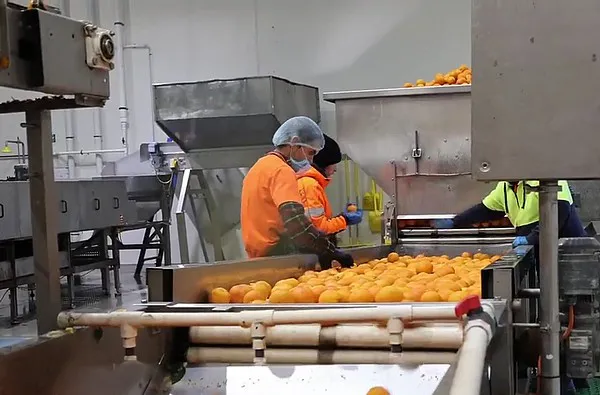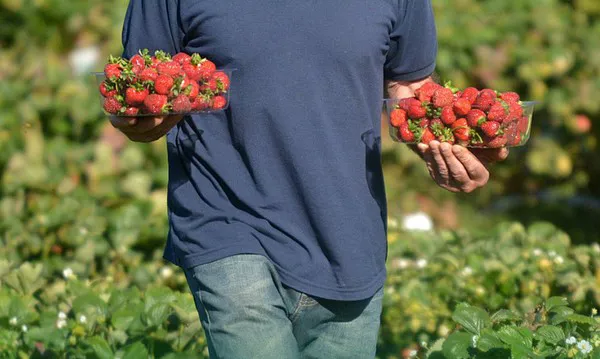The Australian Agriculture Worker Visa (Ag Visa) is a step closer to fruition, after the Federal Government amended the Migration Regulations, enabling it to be operationalized with a supporting program administered by the Department of Foreign Affairs and Trade (DFAT).
Minister for Agriculture and Northern Australia, David Littleproud says it is a landmark moment for the sector and it delivers on the government's promise to have the visa signed into law this year. The regulation provides a new Australian Agriculture Worker stream which will provide for the entry and temporary stay of workers across primary industries sectors, and provides the pathway for workers to arrive once partner country negotiations are complete - hopefully some by the end of the year.
“The Ag Visa will provide a long-term, reliable workforce for our critical industries while solving one of regional Australia’s greatest challenges in recent history," Mr Littleproud said. “It will be open to applicants from a range of countries and we are already in talks with a number of countries in our region who are eager to participate. It will complement the Pacific programs we have got in place which have been critical in supporting our primary industries to date. The Pacific will remain the key pathway for the sector to access workers for this harvest, with the government committing to double the number of Pacific workers in Australia by March 2022.”

Photo courtesy: The Nationals Party's Ag Visa promotional video.
The Australian Fresh Produce Alliance (AFPA) welcomes the amendment, saying it will reduce the industry’s reliance on backpackers and better complement the ongoing engagement of Pacific workers and Australians in seasonal harvest roles. It will provide for the entry and temporary stay of workers, enabling the recruitment of short-term seasonal and longer-term worker cohorts.
“From a horticulture perspective, our sector has a large number of short term, highly seasonal roles that often see workers move between employers and locations following harvest work," AFPA CEO, Michael Rogers said. "The parameters for the Ag Visa outlined today are positive in enabling visa holders to pursue seasonal roles across the industry and return to these roles year on year. Importantly, the Ag Visa will be critical to both allowing the industry to develop a productive and returning workforce and restructuring the sector’s harvest workforce. We are very clear in how the Ag Visa fits within the horticulture industry’s employment options - that is specifically targeting seasonal harvest work peaks. This perfectly complements the ongoing employment of Australians, Pacific workers and other skilled migration pathways available.”
Citrus Australia
Also welcoming the news was Australia's peak citrus body, Citrus Australia, with CEO Nathan Hancock saying the support from those within the government who prioritized this visa has not gone unnoticed.
“They have recognized the significant contribution of the agriculture sector to the national economy and the importance of supporting thousands of farmers," Mr. Hancock said. "The skills shortage has been a long-term issue for growers and this visa will enable the industry to arrest the decline. On behalf of them, we thank the government for committing all government departments to work together on delivering the agriculture visa. There has been tremendous work behind the scenes by members of both Coalition parties, and by government departments, to implement regulations for the visa by the 30th of September as promised. It is an important first step for a long-term, sustainable pathway to secure skilled, semi-skilled and unskilled workers for the citrus industry."

Citrus Australia has already been consulting its members on how the visa could be utilized by their businesses.
“We look forward to contributing to the visa framework to ensure it benefits both growers and ASEAN workers who want to build a career in the agriculture industry,” Mr. Hancock said. “The agriculture visa will not only provide confidence to our citrus growers to continue to invest in their export programs but enables them to focus on attracting returning workers to their farms and pack sheds, leading to increased efficiencies in their business.”
National Farmers' Federation
The National Farmers' Federation had been campaigning for the visa for more than five years, and Chief Executive Tony Mahar says it will widen the recruitment opportunities for low to highly skilled workers from ASEAN countries, while the NFF believes negotiations are well underway to extend the visa to other countries.
"The Ag Visa is a bespoke instrument designed to specifically address agriculture’s many and varied skill deficits. To be most effective the Visa must be portable and allow workers to move between farms based on work demand," he said. "We look forward to continuing to work with Minister Littleproud and the Government on the details of the Visa and how it can best cater for farmers and workers."
The NFF have labeled this as "new dawn for agriculture’s workforce" but have also addressed claims by the Australian Council of Trade Unions (ACTU) that Ag Visa holders would be at risk of mistreatment by calling them nothing more than an attempt at "cheap and uninformed point scoring".
"If the ACTU would bother to educate themselves, they would know the NFF had always recommended the Visa be open only to farmers who can demonstrate that they take care of their workforce and who haven’t been able to hire locally," Mr. Mahar said. "Providing a positive and safe experience for farm workers is a core tenet of the Visa and of paramount importance to the NFF."
Mr. Mahar adds that the onus is now on state and territory governments and their chief health officers to approve quarantine arrangements to safely house incoming foreign workers, including consideration of on-farm quarantine.
A fact sheet from the Australian Government with information on the Ag Visa can be found on the DFAT website.
